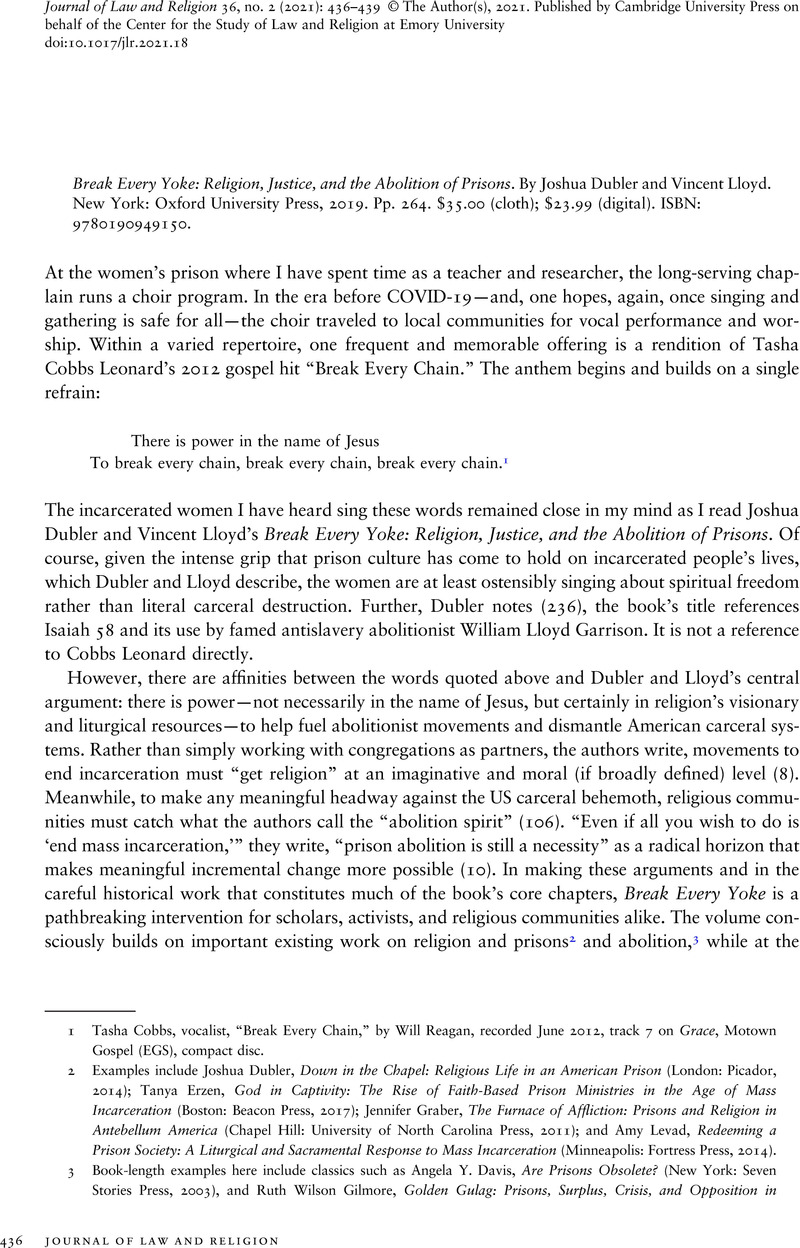No CrossRef data available.
Article contents
Break Every Yoke: Religion, Justice, and the Abolition of Prisons. By Joshua Dubler and Vincent Lloyd. New York: Oxford University Press, 2019. Pp. 264. $35.00 (cloth); $23.99 (digital). ISBN: 9780190949150.
Published online by Cambridge University Press: 21 May 2021
Abstract

- Type
- Book Review
- Information
- Copyright
- Copyright © The Author(s), 2021. Published by Cambridge University Press on behalf of the Center for the Study of Law and Religion at Emory University
References
1 Tasha Cobbs, vocalist, “Break Every Chain,” by Will Reagan, recorded June 2012, track 7 on Grace, Motown Gospel (EGS), compact disc.
2 Examples include Dubler, Joshua, Down in the Chapel: Religious Life in an American Prison (London: Picador, 2014)Google Scholar; Erzen, Tanya, God in Captivity: The Rise of Faith-Based Prison Ministries in the Age of Mass Incarceration (Boston: Beacon Press, 2017)Google Scholar; Graber, Jennifer, The Furnace of Affliction: Prisons and Religion in Antebellum America (Chapel Hill: University of North Carolina Press, 2011)CrossRefGoogle Scholar; and Levad, Amy, Redeeming a Prison Society: A Liturgical and Sacramental Response to Mass Incarceration (Minneapolis: Fortress Press, 2014)CrossRefGoogle Scholar.
3 Book-length examples here include classics such as Davis, Angela Y., Are Prisons Obsolete? (New York: Seven Stories Press, 2003)Google Scholar, and Gilmore, Ruth Wilson, Golden Gulag: Prisons, Surplus, Crisis, and Opposition in Globalizing California (Berkeley: University of California Press, 2007)Google Scholar. Dubler and Lloyd also cite a wide variety of shorter anti-carceral writings and initiatives; the book is useful in part as an archive of these resources.





